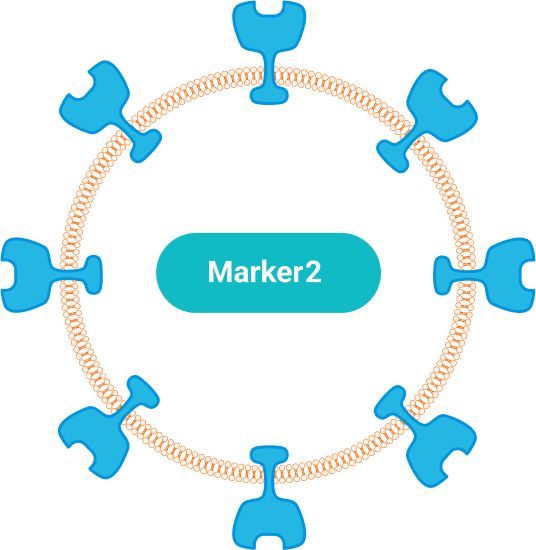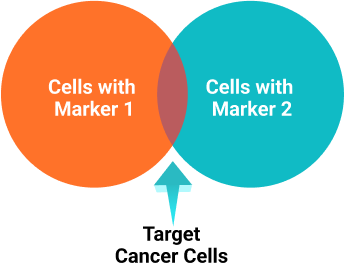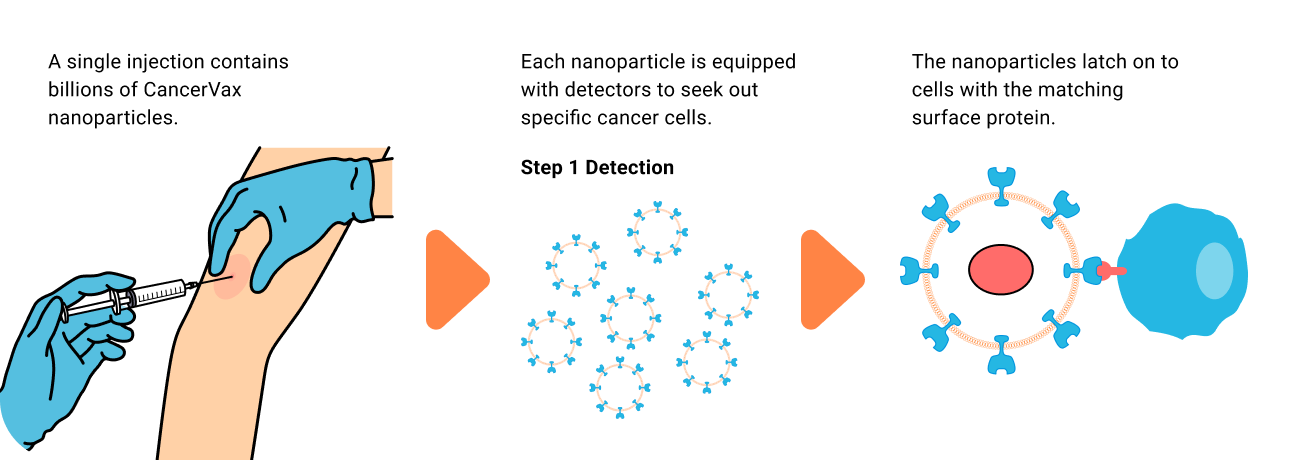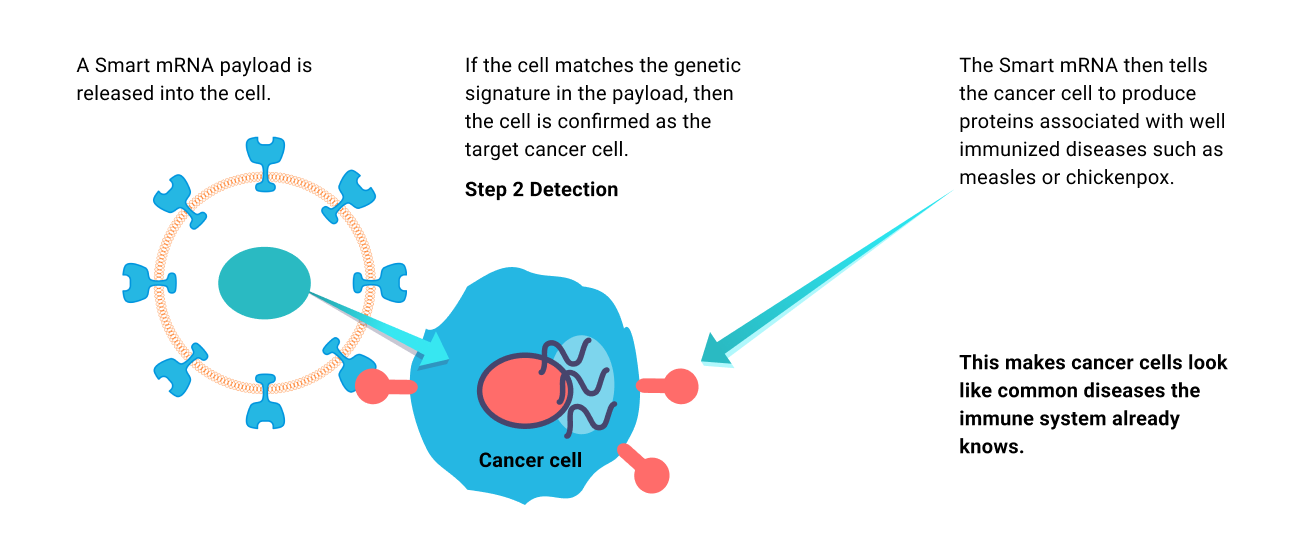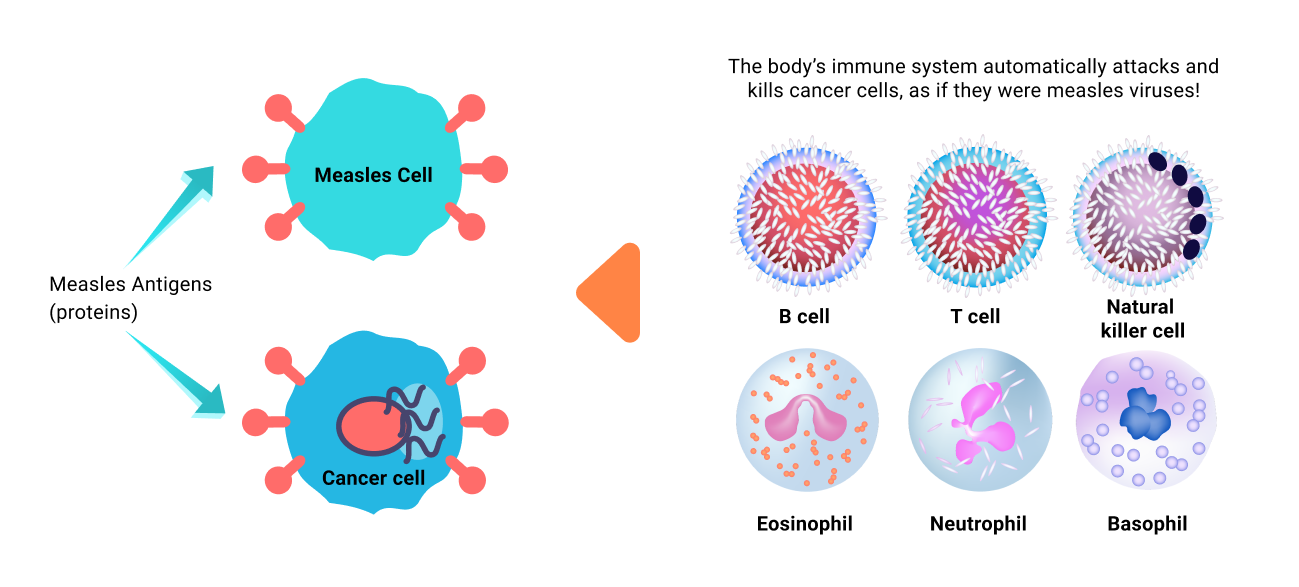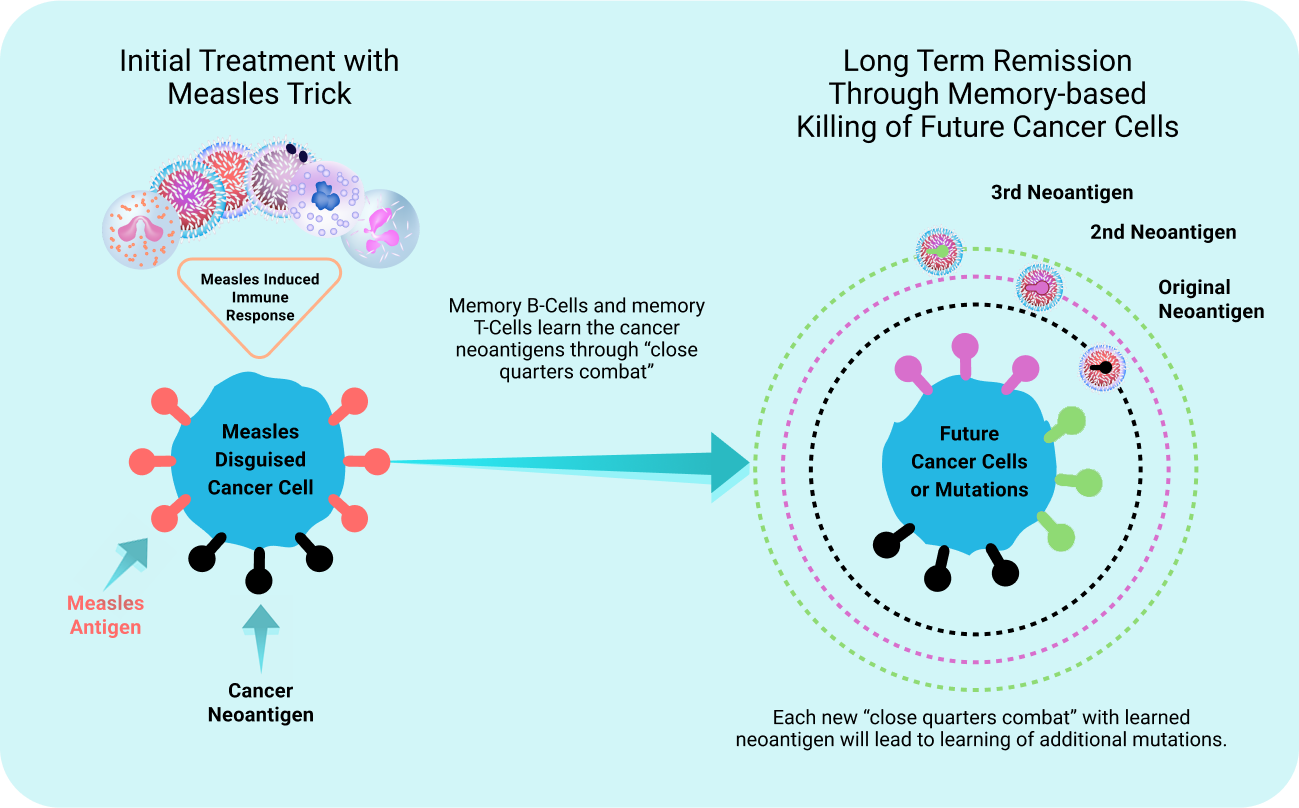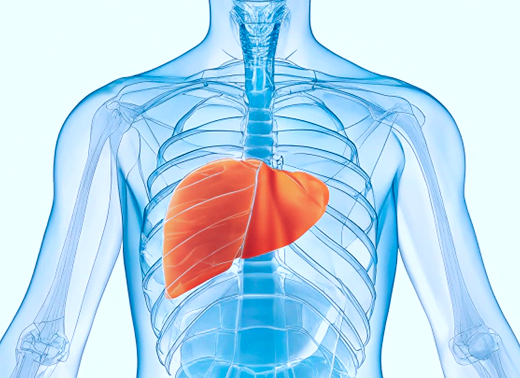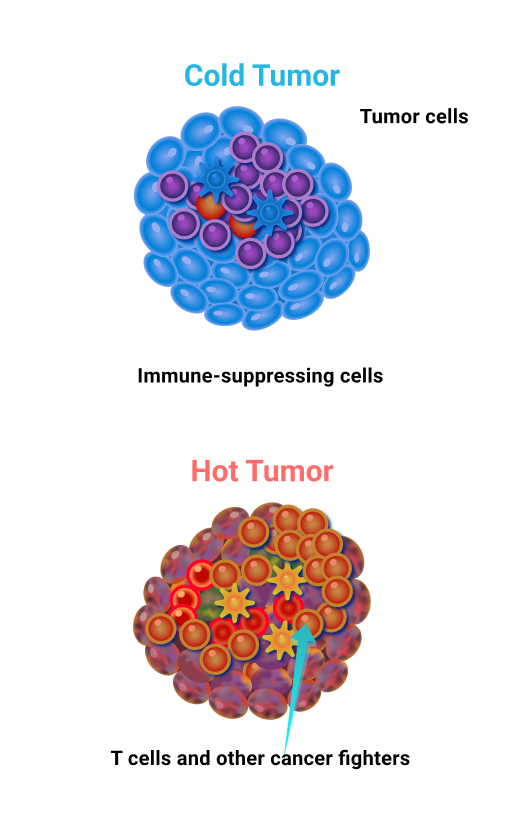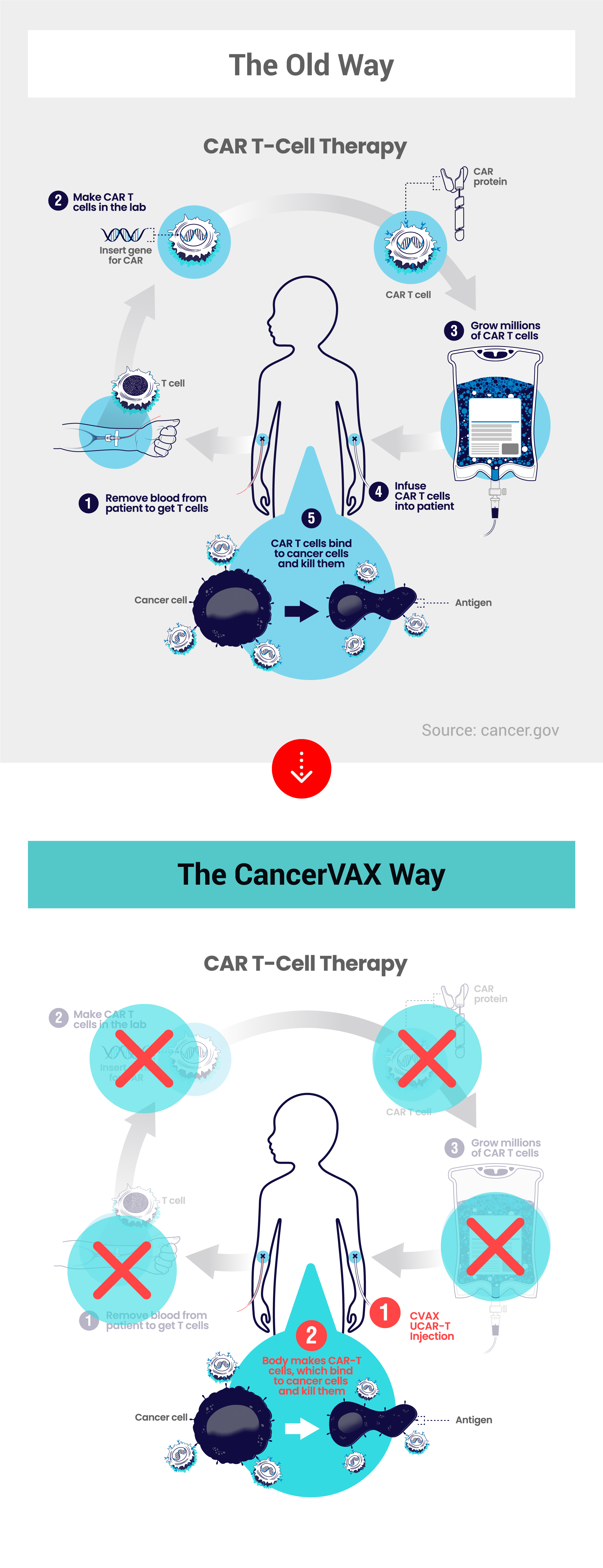Universal Cancer Treatment Platform
We are developing a novel Universal Cancer Treatment Platform, powered by artificial intelligence, that will be customizable as off-the-shelf injections to treat many types of cancer.

Our form of treatment is generally known as cancer immunotherapy or therapeutic cancer vaccines.
Our revolutionary approach DETECTS, MARKS, and KILLS only cancer cells. By making cancer cells look like well-immunized diseases, such as measles, we intend to “trick” the body’s immune system into killing cancer cells. Anyone who has had measles or been vaccinated for it, has strong lifetime immunity to the disease. This immunity kills anything that looks like measles immediately upon re-exposure.
Unlike conventional immunotherapies that try to “teach” the immune system how to recognize cancer cells, our approach is a paradigm shift that “tricks” the immune system.
We believe that teaching the immune system is as difficult as “teaching an old dog a new trick.” Instead, we trick the dog into doing something that it knows how to do very well. In the case of the immune system, that’s killing measles.
Our novel approach is a fundamentally different way of thinking about treating cancer. After countless lives have been lost to cancer, tricking the immune system may be just what the doctors needed.
